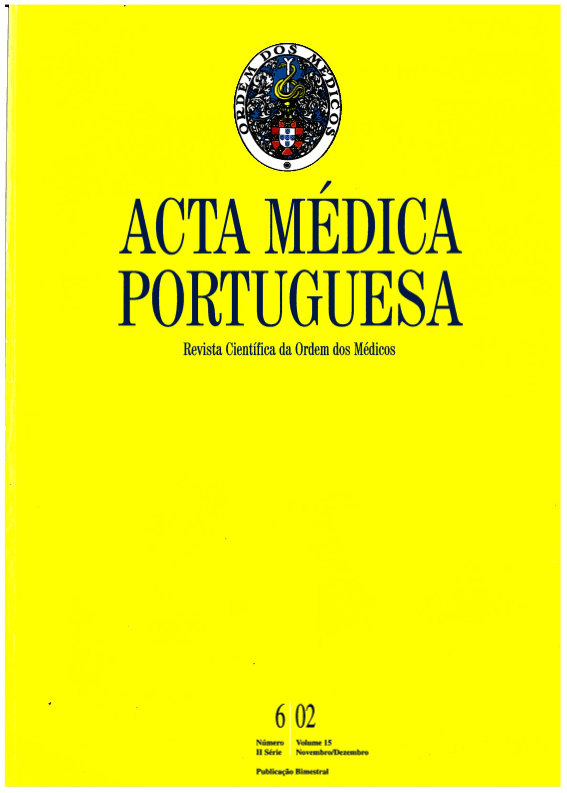Grave's disease and stress.
DOI:
https://doi.org/10.20344/amp.1983Abstract
In recent years, there have been many reports about a possible association between Stressful Life Events (SLE) and the onset of Graves' Disease (GD). Nevertheless, most papers have been criticised and no such association has yet been proven.To assess the possible associations between SLE and the onset of GD.Retrospective study of 62 subjects, divided into 2 groups of 31 each, GD (Gp1) and controls (Gp2). The patients in Gp1 had thyroid disease diagnosed within the last 12 months, with clinical and biochemical confirmation. In Gp2, psychopathological and endocrine disturbances had been ruled out. Each 2 group consisted of 9 males (29%) and 22 females (71%). The mean age was 38.48 + 10.9 in Gp1 and 41.1 + 11.8 in Gp2. SLE evaluation (number and impact) was reported for the 12 months preceding the onset of symptoms of thyroid disease. To assess SLE, we used the Life Experiences Survey-LES from Saranson, Johnson and Siegel (1978; 1985). Statistical analysis was done using Mann-Whitney and Kruskal-Wallis tests.Patients with GD had a significantly greater number of SLEs compared to Controls (p < .001). The number and impact of negative SLEs was significantly higher in Gp1 compared to Gp2 (p < .001). There were no significant differences between the groups in terms of the number and impact of both positive and neutral SLEs.The findings of this study support that SLEs may contribute to the precipitation of GD. We observed that patients with GD had significantly more negative events and experienced a greater negative impact from them prior to the onset of GD. The association of SLEs with GD is probably related to the association of stress with changes in the immune system, which can play an important role in the aetiology of thyrotoxicosis.Downloads
Downloads
How to Cite
Issue
Section
License
All the articles published in the AMP are open access and comply with the requirements of funding agencies or academic institutions. The AMP is governed by the terms of the Creative Commons ‘Attribution – Non-Commercial Use - (CC-BY-NC)’ license, regarding the use by third parties.
It is the author’s responsibility to obtain approval for the reproduction of figures, tables, etc. from other publications.
Upon acceptance of an article for publication, the authors will be asked to complete the ICMJE “Copyright Liability and Copyright Sharing Statement “(http://www.actamedicaportuguesa.com/info/AMP-NormasPublicacao.pdf) and the “Declaration of Potential Conflicts of Interest” (http:// www.icmje.org/conflicts-of-interest). An e-mail will be sent to the corresponding author to acknowledge receipt of the manuscript.
After publication, the authors are authorised to make their articles available in repositories of their institutions of origin, as long as they always mention where they were published and according to the Creative Commons license.









